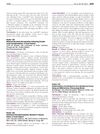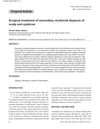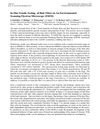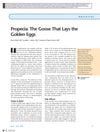 April 2015 in “Cambridge University Press eBooks”
April 2015 in “Cambridge University Press eBooks” Many women experience sexual dysfunction, but few seek help, and better treatment and medical training are needed.

The EMG-to-force model accurately predicts hip muscle forces during walking.
[object Object]  March 2014 in “Journal of The American Academy of Dermatology”
March 2014 in “Journal of The American Academy of Dermatology” A botanical extract may help manage hair loss from chemotherapy by preventing cell death in hair follicles.
 May 2012 in “Scientific American”
May 2012 in “Scientific American” New app improves storm surge predictions; advances in baldness treatment show potential but require time.
 September 2009 in “European Urology Supplements”
September 2009 in “European Urology Supplements” After prostate removal surgery, higher initial prostate size was linked to higher urethral PSA levels and more severe male pattern baldness.
 January 2009 in “Indian Journal of Plastic Surgery”
January 2009 in “Indian Journal of Plastic Surgery” Surgical methods for hair loss due to scarring should be chosen based on the size, location, and shape of the area, with most patients seeing good results.
 February 2008 in “Expert Review of Dermatology”
February 2008 in “Expert Review of Dermatology” Seborrheic dermatitis significantly lowers quality of life, especially in young people, women, and those with higher education.
 August 2007 in “Microscopy and Microanalysis”
August 2007 in “Microscopy and Microanalysis” Hair fibers break by cuticle cell slipping, shape changing, cuticle fraying, and surface cracking when stretched under specific conditions.

Finasteride is popular for treating male hair loss but may increase the risk of serious prostate cancer and has other potential side effects.
[object Object]  July 2020 in “Journal of Cosmetic and Laser Therapy”
July 2020 in “Journal of Cosmetic and Laser Therapy” Using your own platelet-rich plasma (PRP) can effectively treat hair loss, increasing hair density and width with no side effects.










